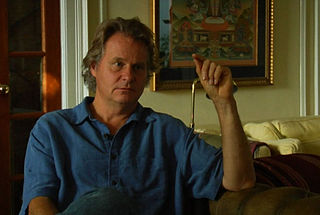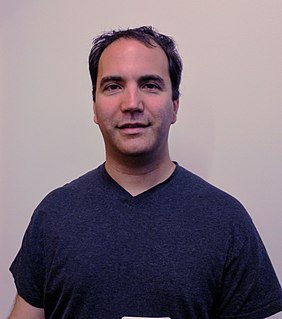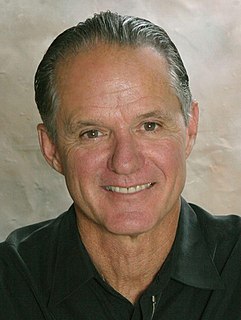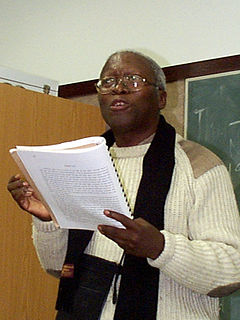Top 1200 Technological Advancement Quotes & Sayings - Page 18
Explore popular Technological Advancement quotes.
Last updated on April 20, 2025.
The arts and sciences, in general, during the three or four last centuries, have had a regular course of progressive improvement. The inventions in mechanic arts, the discoveries in natural philosophy, navigation and commerce, and the advancement of civilization and humanity, have occasioned changes in the condition of the world and the human character which would have astonished the most refined nations of antiquity. A continuation of similar exertions is everyday rendering Europe more and more like one community, or single family.
the society which projects and undertakes the technological transformation of nature alters the base of domination by gradually replacing personal dependence (of the slave on the master, the serf on the lord of the manor, the lord on the donor of the fief, etc.) with dependence on the "objective order of things" (on economic laws, the market etc.).
The social model of the Bolsheviks failed, as will any model that denies individual rights, intellectual freedom, and freedom of competing political parties. Without these freedoms and rights, there is no motivation for people to work. Such a system cannot be sustained, especially in light of the technological revolution of the information era.
By virtue of the way it has organized its technological base, contemporary industrial society tends to be totalitarian. For "totalitarian" is not only a terroristic political coordination of society, but also a non-terroristic economic-technical coordination which operates through the manipulation of needs by vested interests.
It's clearly a crisis of two things: of consciousness and conditioning. We have the technological power, the engineering skills to save our planet, to cure disease, to feed the hungry, to end war; But we lack the intellectual vision, the ability to change our minds. We must decondition ourselves from 10,000 years of bad behavior. And, it's not easy.
Designing is not a profession but an attitude. Design has many connotations. It is the organization of materials and processes in the most productive way, in a harmonious balance of all elements necessary for a certain function. It is the intergration of technological, social, and economical requirements, biological necessities, and the psychological effects of materials, shape, color, volume and space. Thinking in relationships.
Futurologists have been multiplying like flies since the day Herman Kahn made Cassandra's profession "scientific," yet somehow not one of them has come out with the clear statement that we have wholly abandoned ourselves to the mercy of technological progress. The roles are now reversed: humanity becomes, for technology, a means, an instrument for achieving a goal unknown and unknowable.
I think markets are mechanisms that determine prices that are necessary for mass heterogenous populations, and markets do generate levels of technological innovation and productivity that is crucial. But when unregulated, they often generate levels of vast inequality and ugly isolation that makes it difficult for people to relate and connect with one another.
I find that because of modern technological evolution and our global economy, and as a result of the great increase in population, our world has greatly changed: it has become much smaller. However, our perceptions have not evolved at the same pace; we continue to cling to old national demarcations and the old feelings of 'us' and 'them'.
To make a proper moral appraisal of the prevalence of severe poverty today, we should focus not on comparisons with times past, when the global average income was much lower, but on a comparison with what would be possible in our time, given the current global average income and level of technological and administrative development.
The function of entrepreneurs is to reform or revolutionize the pattern of production by exploiting an invention or, more generally, an untried technological possibility for producing a new commodity or producing an old one in a new way, by opening up a new source of supply of materials or a new outlet for products, by reorganizing an industry and so on.
In most industries, technological change is happening at a rapid rate. I find it is happening in different ways to every industry in the world, and positioning yourself for that, and trying to get ahead of that, is a big conversation right now. Digitization has created opportunities for everybody to accumulate information in a way they were never able to, and analyze it with a speed that just wasn't there.
During the last two centuries, there have been many deflations throughout the world. Almost all of them have been good ones precipitated by technological innovation, rising productivity, global capital flows, and sustained economic growth. If farm mechanization cuts the price of wheat, you get a rising living standard. This is good.
I'm still committed to the socialist idea because the socialist idea, correctly understood, includes the principles of freedom and social justice. It also includes the recognition of the value of democracy. When we speak about social justice, it means that freedom should be used not only in the interest of profit but also in the interest of the advancement of the people who create all values.
Whenever education and refinement carry us away from the common people, they are growing towards selfishness, which is the monster evil of the world. That is true cultivation which gives us sympathy with every form of human life, and enables us to work most successfully for its advancement. Refinement that carries us away from our fellow people is not God's refinement.
I know when I grew up, it was, if it was daylight outside, get outside. Well, now, with the technological age of computers and everything, everyone's inside virtually going everywhere they want to go, virtually having relationships, virtually traveling across the neighborhood, virtually going to that island.
In 500 years, English has changed a lot, and right now we're undergoing an extremely rapid rate of accelerated advancement in terms of technology, but I still have a hard time believing that we're going to stop speaking to each other. The role of architecture, in terms of communication, is not going to drastically change either. It's going to continue to create a cultural affect where people will be able to understand something beyond function that may otherwise be foreign to them.
If we accept that we are all cut from the same genetic cloth, all cultures share the same genius. And whether that genius is placed into technological wizardry which has been our great achievement, or, by contrast, placed into the unraveling of complex threads of memory inherent in a myth is simply a matter of choice.
Never before have people been so infantalized, made so dependant on the machine for everything; as the earth rapidly approaches its extinction due to technology, our souls are shrunk and flattened by its pervasive rule. Any sense of wholeness and freedom can only return by the undoing of the massive division of labour at the heart of technological progress. This is the liberatory project in all its depth.
Prosperity in human society is misunderstood. The difference between a rich and poor society is the number of problems that society solves for its citizens. That means technological innovation is the source of all prosperity, but with every tech innovation, you also get disruption - ultimately, social and civic disruption.
Every major technological step forward has profoundly changed human society - that's how we know they're major, even if we don't always realise it at the time. Farming created cities. Writing, followed eventually by printing, vastly increased the preservation and transmission of cultural information across time and space.
The Singularity denotes an event that will take place in the material world, the inevitable next step in the evolutionary process that started with biological evolution and has extended through human-directed technological evolution. however, it is precisely in the world of matter and energy that we encounter transcendence, a principal connotation of what people refer to as spirituality.
I think the big challenge that we've got on education is making sure that from kindergarten or prekindergarten through your 14th or 15th year of school, or 16th year of school, or 20th year of school, that you are actually learning the kinds of skills that make you competitive and productive in a modern, technological economy.
We can accomplish almost anything within our ability if we but think we can! Every great achievement in this world was first carefully thought out. Think-but to a purpose. Think constructively. Think as you read. Think as you listen. Think as you travel and your eyes reveal new situations. Think as you work daily at your desk, or in the field, or while strolling. Think to rise and improve your place in life. There can be no advancement or success without serious thought
You know, what I didn't know was how many people in the tech world the original movie had such an impression on. That's really interesting to me because a lot of the people who created this technological revolution that we're all living through were kids when Tron came out, and they saw Tron and it impacted them.
The answer is navigation, manipulation, and implementation of more sophisticated intelligence. The idea that a robot will become more aware of its environment, that telling it to "go to the kitchen" means something - navigation and understanding of the environment is a robot problem. Those are the technological frontiers of the robotics industry.
I was thinking how strange it is that water is one of the best, simplest things on this planet, and still with a simple glass of water you can neutralize so many of the greatest technological advances that we provide. Like with my blackberry, I can get in touch with so many people, but if I dip it in a small glass of water I'm completely disconnected.
The fundamental problem is that the gap in educational achievement, which is a key in our technological economy, is due in my opinion - and the opinion of many, including Arne Duncan, our secretary of education - to the fact that the families of the poor who are not very educated are not talking to their children, interacting with their children, insisting they do their homework and so on.
Opposition to the truth is inevitable, especially if it takes the form of a new idea, but the degree of resistance can be diminished- by giving thought not only to the aim but to the method of approach. Avoid a frontal attack on a long established position; instead, seek to turn it by flank movement, so that a more penetrable side is exposed to the thrust of truth. But, in any such indirect approach, take care not to diverge from the truth- for nothing is more fatal to its real advancement than to lapse into untruth.
We Aryans are those of European descent who are racially conscious and who have committed our lives to our people's survival and evolutionary advancement. We shall do our duty. We shall not surrender our freedom and our very existence to Jewish or any other power. We shall preserve our heritage and our hard-won rights and freedoms. We shall guide our people up the evolutionary stairway to the stars.
I would say that, in the future, the book will be reserved for things that function best as a book. So, if I need a textbook that's going to be out of date because of new technological inventions, you're better off having it where you can download the supplements or the update. If you're going to read a quick mystery novel to keep you amused while you're traveling, it's fine.
Television screens saturated with commercials promote the utopian and childish idea that all problems have fast, simple, and technological solutions. You must banish from your mind the naive but commonplace notion that commercials are about products. They are about products in the same sense that the story of Jonah is about the anatomy of whales.
The Catholics have a Pope. Protestants laugh at them, and yet the Pope is capable of intellectual advancement. In addition to this, the Pope is mortal, and the church cannot be afflicted with the same idiot forever. The Protestants have a book for their Pope. The book cannot advance. Year after year, and century after century, the book remains as ignorant as ever.
The average worker in 2015 wanting to attain the average living standard in 1915 could do so by working just 17 weeks a year, one third of the time. But most people don't choose to do that. They are willing to work hard to harvest the technological bounty that is available to them. Material abundance has never eliminated perceived scarcity.
I am far from any intention to limit curiosity, or confine the labours of learning to arts of immediate and necessary use. It is only from the various essays of experimental industry, and the vague excursions of mind set upon discovery, that any advancement of knowledge can be expected; and though many must be disappointed in their labours, yet they are not to be charged with having spent their time in vain; their example contributed to inspire emulation, and their miscarriage taught others the way to success.
There's no doubt that the search for planets is motivated by the search for life. Humans are interested in whether or not life evolves on other planets. We'd especially like to find communicating, technological life, and we look around our own solar system, and we see that of all the planets, there's only one that's inhabited.
It is certain that success naturally confirms in us a favourable opinion of our own abilities. Scarce any man is willing to allot to accident, friendship, and a thousand causes, which concur in every event without human contrivance or interposition, the part which they may justly claim in his advancement. We rate ourselves by our fortune rather than our virtues, and exorbitant claims are quickly produced by imaginary merit.
The real challenge is not to get people to remember more, but to get them to understand better. We're just now beginning to be able to show what we can implement with technological tools. I think our interest at Apple is to be the provider of the instruments that will help educators and students create and entirely new kind of learning than what we have now.
It is not what I do that matters, but what a sovereign God chooses to do through me. God does not want worldly successes, He wants me. He wants my heart in submission to Him. Life is not just a few years to spend on self indulgence and career advancement. It is a privilege, a responsibility, a stewardship to be lived according to a much higher calling, God's calling. This alone gives true meaning to life.
By all indications, American business leaders are more adept at creating business strategies than they are skilled at human capital management. American entrepreneurs are world-beaters when it comes to creating new businesses, and corporate managers are adept at using the latest marketing, financial, and technological practices.
If you could map out a human brain, an open question is, if you simulated it, would it be you? Now, as we discussed earlier, we don't have a great definition or even a good technological handle to know whether something is conscious or not just by looking at it, so there's that aspect that we're not ready to answer, I would argue. But it raises very interesting questions about the nature of identity.
What's interesting about the shift from an industrial age to a technological age is that we keep inventing new media: movies, records, radio, television, the Internet, and now ebooks - and one of the things that's most interesting about the invention of a new medium is watching it reinvent itself as it penetrates the culture.
The greatest cost of the specialization of technological life - and out of which all other damages are birthed - is arguably our separation from the practical and enriching sense of ourselves as embodied beings. When we are alienated from the wisdom of the body, our lives become theoretical and abstract, and we are distanced from the direct, felt sense of living.
No technological achievements can mitigate the disappointment of modern man, his loneliness, his feeling of inferiority, and his fear of war, revolution and terror. Not only has our generation lost faith in Providence but also in man himself, in his institutions and often in those who are nearest to him.
All black people who are even minimally conscious, black people who have ever experienced Europe's technological power crusading in the vanguard of a civilizing mission, have profound feelings of inferiority and bitterly regret the fact that the Industrial Revolution did not agreeably commence in Dahomey or Dakar. Nothing is achieved by concealing this fact.
























































